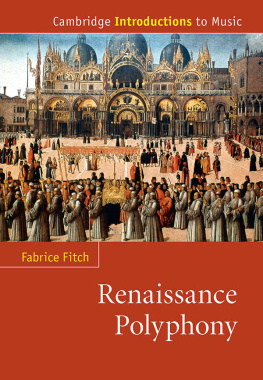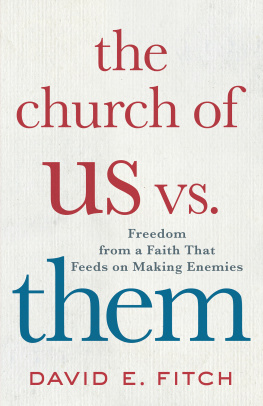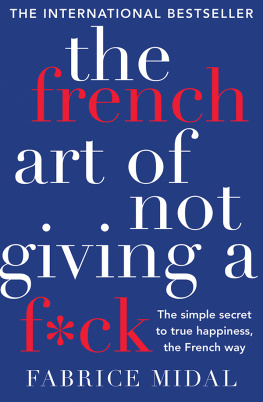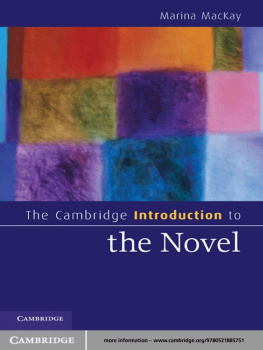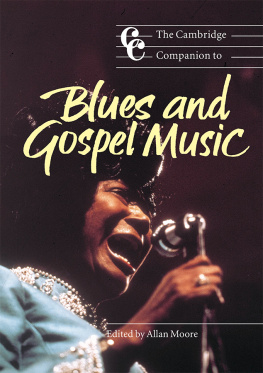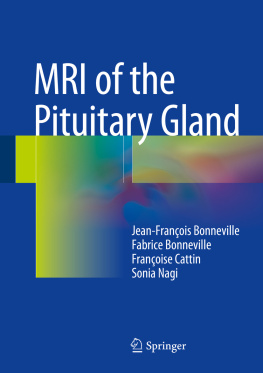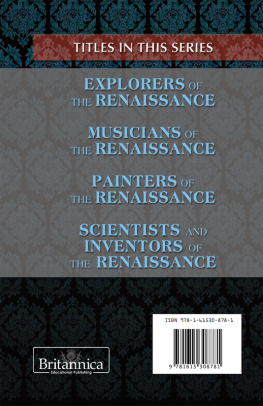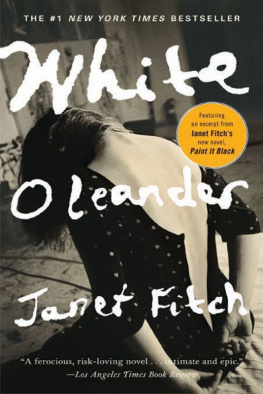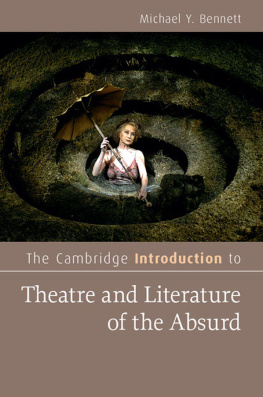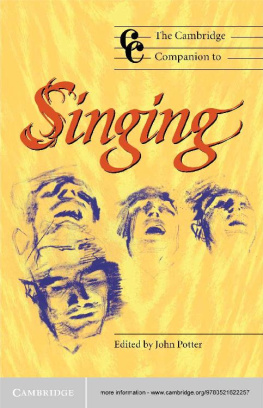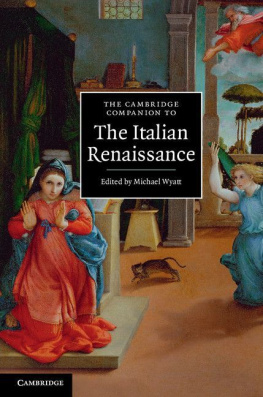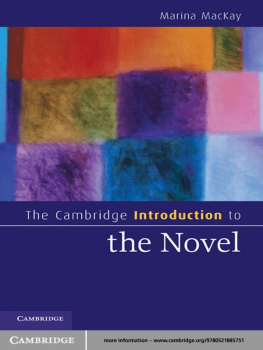Fabrice Fitch - Renaissance Polyphony (Cambridge Introductions to Music)
Here you can read online Fabrice Fitch - Renaissance Polyphony (Cambridge Introductions to Music) full text of the book (entire story) in english for free. Download pdf and epub, get meaning, cover and reviews about this ebook. year: 2020, publisher: Cambridge University Press, genre: Religion. Description of the work, (preface) as well as reviews are available. Best literature library LitArk.com created for fans of good reading and offers a wide selection of genres:
Romance novel
Science fiction
Adventure
Detective
Science
History
Home and family
Prose
Art
Politics
Computer
Non-fiction
Religion
Business
Children
Humor
Choose a favorite category and find really read worthwhile books. Enjoy immersion in the world of imagination, feel the emotions of the characters or learn something new for yourself, make an fascinating discovery.
- Book:Renaissance Polyphony (Cambridge Introductions to Music)
- Author:
- Publisher:Cambridge University Press
- Genre:
- Year:2020
- Rating:4 / 5
- Favourites:Add to favourites
- Your mark:
- 80
- 1
- 2
- 3
- 4
- 5
Renaissance Polyphony (Cambridge Introductions to Music): summary, description and annotation
We offer to read an annotation, description, summary or preface (depends on what the author of the book "Renaissance Polyphony (Cambridge Introductions to Music)" wrote himself). If you haven't found the necessary information about the book — write in the comments, we will try to find it.
Renaissance Polyphony (Cambridge Introductions to Music) — read online for free the complete book (whole text) full work
Below is the text of the book, divided by pages. System saving the place of the last page read, allows you to conveniently read the book "Renaissance Polyphony (Cambridge Introductions to Music)" online for free, without having to search again every time where you left off. Put a bookmark, and you can go to the page where you finished reading at any time.
Font size:
Interval:
Bookmark:
Cambridge Introductions to Music
Renaissance Polyphony
This engaging study introduces Renaissance polyphony to a modern audience. It helps readers of all ages and levels of experience make sense of what they are hearing. How does Renaissance music work? How is a piece typical of its style and type; or, if it is exceptional, what makes it so? The makers of polyphony were keenly aware of the specialized nature of their craft. How is this reflected in the music they wrote, and how were they regarded by their patrons and audiences? Through a combination of detailed, nuanced appreciation of musical style and a lucid overview of current debates, this book offers a glimpse of meanings behind and beyond the notes, be they playful or profound. It will enhance the listening experience of students, performers and music lovers alike.
Fabrice Fitch is a composer and musicologist specializing in Renaissance polyphony and its performance. His monograph Johannes Ockeghem: Masses and Models remains the only full-length book in English on the composer, and he has published widely on Obrecht, Agricola, other composers of that generation, and the Eton Choirbook. His compositions have been performed by leading soloists and chamber ensembles and broadcast internationally. He has been a reviewer with Gramophone for over twenty-five years. He is currently Senior Research Fellow at the Royal Conservatoire of Scotland.
A complete list of books in the series is featured at the
Cambridge Introductions to Music Renaissance Polyphony
Fabrice Fitch


University Printing House, Cambridge CB2 8BS, United Kingdom
One Liberty Plaza, 20th Floor, New York, NY 10006, USA
477 Williamstown Road, Port Melbourne, VIC 3207, Australia
314321, 3rd Floor, Plot 3, Splendor Forum, Jasola District Centre, New Delhi 110025, India
79 Anson Road, #0604/06, Singapore 079906
Cambridge University Press is part of the University of Cambridge.
It furthers the Universitys mission by disseminating knowledge in the pursuit of education, learning, and research at the highest international levels of excellence.
www.cambridge.org
Information on this title: www.cambridge.org/9780521899338
DOI: 10.1017/9781139017299
Cambridge University Press 2020
This publication is in copyright. Subject to statutory exception and to the provisions of relevant collective licensing agreements, no reproduction of any part may take place without the written permission of Cambridge University Press.
First published 2020
Printed in the United Kingdom by TJ International Ltd, Padstow Cornwall
A catalogue record for this publication is available from the British Library.
Library of Congress Cataloging-in-Publication Data
Names: Fitch, Fabrice, author.
Title: Renaissance polyphony / Fabrice Fitch.
Description: [1.] | New York : Cambridge University Press, 2020. | Series: Cambridge introductions to music | Includes bibliographical references and index.
Identifiers: LCCN 2020004220 | ISBN 9780521899338 (hardback) | ISBN 9781139017299 (epub)
Subjects: LCSH: Music 16th century History and criticism. | Counterpoint History 16th century. | Music To 1500 History and criticism. | Counterpoint History To 1500.
Classification: LCC ML172 .F57 2020 | DDC 781.2/8609031dc23
LC record available at https://lccn.loc.gov/2020004220
ISBN 978-0-521-89933-8 Hardback
ISBN 978-0-521-72817-1 Paperback
Cambridge University Press has no responsibility for the persistence or accuracy of URLs for external or third-party internet websites referred to in this publication and does not guarantee that any content on such websites is, or will remain, accurate or appropriate.
To my students at Durham University (19942009) and the Royal Northern College of Music (20092018), especially L. M. I., J. A. H., and L. K. T. (F.)
Given how long this book has been in preparation, my first thanks must go to its prime mover, Victoria Cooper, who commissioned it; Kate Brett, her successor at Cambridge University Press; and their assistant, Eilidh Burrett, all of whom have shown me boundless kindness and patience. I hope that what follows fulfils Vickys long-expressed wish to see in print the book she would like to have read as a student. Professor Barbara Kelly was instrumental in securing a period of research leave from the Royal Northern College of Music, without which the final campaign of work would not have begun, and the Research and Knowledge Exchange Department of the Royal Conservatoire of Scotland brought about the material circumstances that enabled its completion, as well as providing financial assistance.
I thank colleagues and publishers who have granted permission for their editions to appear as supporting materials on Cambridge University Presss website: Jane A. Bernstein, Adam Knight Gilbert, Scott Metcalfe, Mariacarmen Gmez Muntan, the late Alejandro Enrique Planchart, University of Chicago Press, Institut Valenci de Msica, BREPOLS, A-R Editions, and the Koninklijke Vereniging voor Nederlandse Muziekgeschiedenis. Anna Maria Busse Berger, Iain Fenlon, Richard Freedman, Jesse Rodin, and Richard Wistreich generously helped in the compilation of the bibliography. For other practical advice and support I am indebted to Simon Clarke, Roger Mathew Grant (who kindly set and allowed me to reproduce ), Ann Kelders, Jesse Rodin, and Stephen Broad. I thank Paul Archbold, my former colleague at Durham University, for his painstaking work in setting the musical examples, with financial support from the Music & Letters Trust (Oxford University Press), which I gratefully acknowledge. Last but not least, I thank my copy-editor, Kilmeny MacBride, who steered the text through its final stages expertly and with unfailing good humour, and Bonnie J. Blackburn for her eagle-eyed reading of the proofs, compilation of the index, and generous advice.
This book bears the traces of countless discussions and convivial exchanges with friends and colleagues alongside whom I have grown up (or, at any rate, grown older), in particular Jane Alden; Sean Gallagher; Andrew Kirkman; and the late Philip Weller (19582018), who is much missed by so many; all of whom have helped shape and sharpen my thinking about music of all kinds. Specific chapters draw on the work of Philippe Canguilhem, Ruth DeFord, Warwick Edwards, and Katelijne Schiltz. Warwick Edwards, David Fallows, Alastair Harper, and Martin Iddon read the entire typescript, and Ruth DeFord, Lois Fitch, Stefano Mengozzi, Scott Metcalfe, and Keith Polk read individual chapters, making valuable suggestions and sparing me innumerable blushes. I also thank the organizers of conferences I attended while writing this book, for providing creative stimulation and much-needed respite from a hermitic existence: Andrea Lindmayr-Brandl, Paul Kolb, Agnese Pavanello, Klaus Pietschmann, Immanuel Ott, Wolfgang Fuhrmann, Joo Pedro dAlvarenga, Bart Demuyt, David Burn, Christiane Wiesenfeldt, Stratton Bull, Klaartje Proesmans, Jesse Rodin, and Emily Zazulia.
Finally, my debt to David Fallows remains incalculable, as also the support over many years of Jaap van Benthem, Warwick Edwards, and Brian Ferneyhough. Above all, I thank my family, especially my wife, Lois, and our daughter, Livia Alinor, without whose love and support in especially challenging times, I could not have seen this project through.
Font size:
Interval:
Bookmark:
Similar books «Renaissance Polyphony (Cambridge Introductions to Music)»
Look at similar books to Renaissance Polyphony (Cambridge Introductions to Music). We have selected literature similar in name and meaning in the hope of providing readers with more options to find new, interesting, not yet read works.
Discussion, reviews of the book Renaissance Polyphony (Cambridge Introductions to Music) and just readers' own opinions. Leave your comments, write what you think about the work, its meaning or the main characters. Specify what exactly you liked and what you didn't like, and why you think so.

